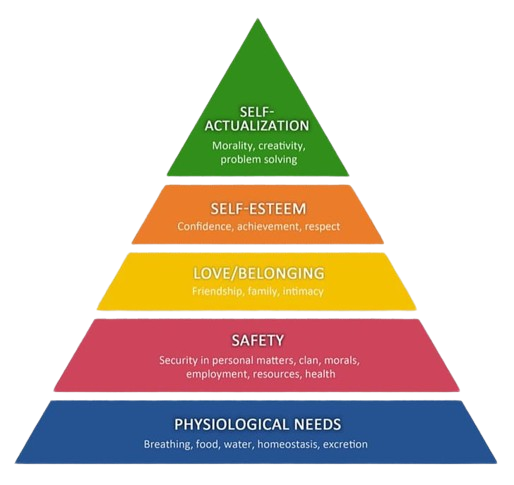Behaviorism and Humanistic are opposing views in personality theory. Behaviorism as the name suggests focuses on observable behaviors and learning whilst Humanistic psychology focuses on self-actualization and subjective experience of an individual.
This the continuation from the previous article where looked at the early 2oth century wehere we examined Sigmund Freud, Carl Jung and Alfred Adler works and how they have contributed to modern psychology in the developments of personality theories.
In this part we will look at Behaviorism and Humanistic; an opposing views in personality theory. Behaviorism as the name suggests focuses on observable behaviors and learning whilst Humanistic psychology focuses on self-actualization and subjective experience of an individual.
Behaviorism
Introduced in the mid 90’s, behaviorism is once of the dominant and influential concept in fields such as therapy, education and animal training. At its core it has three fundamental pillars; objectivity, learning through conditioning, and a Black box approach to understanding to understanding an individual. John B. Watson is considered the father of behaviorism which advocates for his controlled experiments in studying observable behaviors. B. F. Skinner introduced operant conditioning, using a box which was referred to as Skinner’s box to demonstrate how rewards and punishment shape behaviors in his infamous experiments with pigeons. Ivan Pavlov on the other hand pioneered classical conditioning, demonstrating how learned associations can influence behaviors with his experiment with dogs.
- Objectivity: As stated earlier, Behaviorism focuses on observable behaviors as primary subject of study, aiming for an objective and scientific understanding of human actions
- Learning Through Conditioning: Psychologists in this field, behaviorists, propose that all behaviors are learned through conditioning, a process where responses to stimuli are strengthened or weakened based on the consequence of the actions. That is, to enforce good behaviors by encouraging or stop a bad behavior by punishing. The conditioning include:
- Classical Conditioning: Pairing a neutral stimulus with a naturally occurring response hence creating new associations (example: Pavlov’s dogs)
- Operant Conditioning: Reinforcing or punishing behaviors based on the outcome which intend shape future behaviors (example: Skinner’s pigeons)
- Black Box Approach: Unlike the psychoanalysis theory, behaviorism largely ignores internal states such as thoughts and emotions, and focuses on stimulus-response relationships.
Critiques and Limitations of Behaviorism
- The first critique of behaviorism is the black box approach to understanding human behaviors. It the internal process that greatly influences people behaviors such thoughts, feelings, and individual processes hence providing an incomplete picture of person’s action.
- Behaviorism has a deterministic approach to the intention of an individual’s action, that is, external factors and learning can downplay the role of individual agencies and choices. Implying that we can use external forces to shape the actions of a person
- The manipulations of subjects’ behaviors posses ethical concerns through conditioning especially when dealing with human subjects.
Humanistic psychology
Emerging as the opposing theory to the perceived limitations of both behaviorism and psychoanalysis, Humanistic psychology offers a unique a perspective on personality by the whole individual other than focusing on aspects of the individual. The core principles in this theory are:
- Holistic Focus:Focus on the whole being of the individual; considering, thoughts, feelings, emotions, and experience; not just observable behaviors or unconscious drives
- Subjectivity and Uniqueness: Humanistic psychology prioritizes the individual’s subjective experience and environs as the crucial element of understanding their personality. This crucial element shapes a person’s perspective on reality and their unique personality development.
- Intrinsic Growth Potential: Human beings are viewed as entities possessing innate drive for self-actualization; a motivation to realize their full potential and becoming the best versions of themselves
- Emphasizes on the importance’s of Free Will and Choice: Individuals have freedom and responsibility to shape their personalities through choices and actions
Abraham Maslow's Hierarchy of Needs
Abraham Maslow emphasizes on the innate motivation for individuals to become the best versions of themselves with the famous pyramid of five needs that motivates individuals: Physiological (food, water, shelter, *survival needs); Safety and Security; Love and Belonging (connection, intimacy); Esteem (Recognition, achievements, respect); and Self-Actualization (fulfilling one’s full potential, living authentically)

The contributions of Maslow’s theory to personality theory include:
- The hierarchy identifies needs as the driving forces behind behavior, shaping our choices, goals and hence our overall personality. Individuals strive to fulfill their needs with each level acting as a step towards attaining a full self.
- Needs among individuals varies as people prioritizes different needs based on their own experience, values, circumstances and current stage in life. For example a high school will prioritize social connection (love and belonging) whilst a college student will exhibit a strong need for achievement (esteem); a kid from poor home will prioritize food and shelter for the day whilst a kid from rich will concentrate on getting his or her assignments even though they are students of the same class
- The pyramid highlights self-actualization as the pinnacle of personality development, representing the realization of one’s full potential.
Strengths and Criticisms to Abraham Maslow's Hierarchy of Needs:
- Intuitive and Accessible: The hierarchical needs structure presents a clear and understandable model of human motivation, making it applicable across various fields.
- Emphasizes Growth and Potential: Recognizing the inherent drive for self-actualization fosters a positive and optimistic perspective on personality development.
- Criticisms and Limitations:
- Oversimplification: The rigid hierarchy might not capture the complex interplay of needs and influences in real life.
- Cultural Bias: The concept might reflect Western values and may not generalize well to all cultures.
- Individual Differences: The model doesn't fully account for unique experiences and motivations that shape personality beyond needs.
Carl Rogers' Person-Centered Therapy and Personality Theory
While not a complete personality theory itself, Carl Rogers' Person-Centered Therapy (PCT) offers a significant contribution to understanding personality development and change. PCT offers valuable insights into understanding personality as a dynamic, self-directed process shaped by both internal experiences and interpersonal relationships. It emphasizes the importance of self-acceptance, personal agency, and fostering genuine connections, making it a relevant and impactful perspective within personality theory. The fundamental concepts of the PCT theory include:
- The Actualizing Tendency: Rogers believed humans possess an innate drive towards self-actualization,just as Maslow did, aiming to become their authentic selves, utilizing their full potential. This innate tendency shapes personality development.
- The Self-Concept: He introduced the self-concept, which composed of beliefs and perceptions about ourselves, influences personality and guides behavior. Incongruence between the ideal self is what we aspire to be and the perceived self is what we believe we are can lead to psychological distress.
- Conditions for Positive Personality Growth: PCT provides three core conditions believed to foster positive personality growth:
- Unconditional Positive Regard: Accepting the client without judgment, fostering genuineness and self-exploration.
- Empathy: Deeply understanding the client's perspective and emotional experience.
- Congruence: The therapist being genuine and transparent, building trust and authenticity.
Personality Change in PCT:
- By creating a safe and supportive environment, PCT facilitates self-exploration and self-acceptance, allowing individuals to:
- Identify and reconcile incongruences within their self-concept.
- Recognize their full potential and authentic desires.
- Make choices aligned with their true selves, shaping their evolving personality.
- This therapeutic process empowers individuals to take ownership of their personalities and growth, promoting self-directedness and personal agency.
Contributions to Personality Theory:
- Focus on Subjective Experience: PCT emphasizes the centrality of subjective experience in shaping personality, a unique contribution compared to behaviorist or psychoanalytic perspectives.
- Importance of Relationships: The therapeutic relationship as a catalyst for positive change highlights the significant role of social interactions in personality development.
- Emphasizing Growth Potential: PCT fosters an optimistic perspective on personality, focusing on individuals' capacity for self-actualization and positive change.
Criticisms and Considerations:
- Limited Empirical Evidence: The effectiveness of PCT has been questioned due to its reliance on subjective measures and potential biases.
- Emphasis on Therapist's Role: The therapist's skills and personality can significantly influence the therapeutic process, raising concerns about generalizability.
- Individualistic Focus: PCT primarily focuses on individual experiences and may not adequately address societal influences on personality development.








